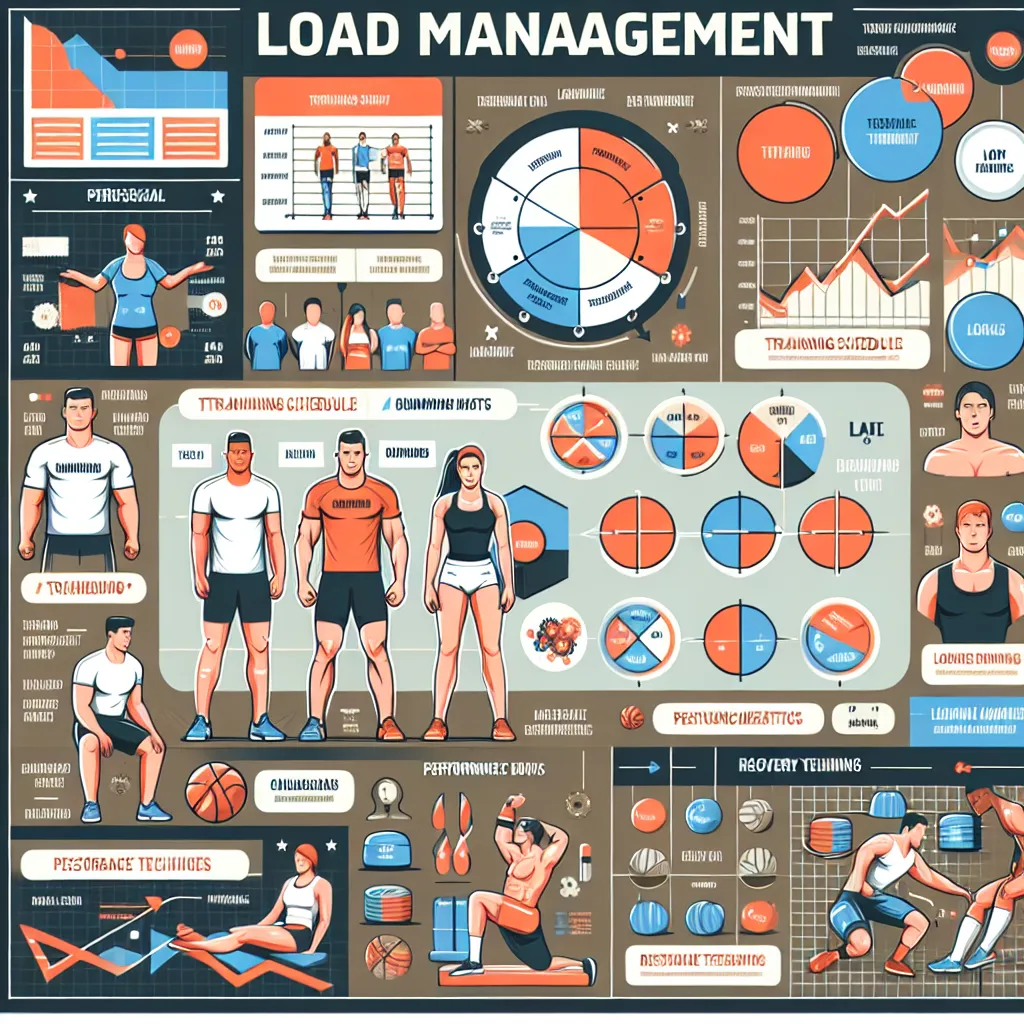‘Load management’ is a crucial concept in various fields, particularly in sports and energy sectors. Let’s break down this term to understand its components and usage in the IELTS context.
Definition: Load management refers to the strategic regulation and distribution of workload or energy consumption to optimize performance and prevent overexertion or wastage.
Part of Speech: Noun phrase
Pronunciation: /ləʊd ˈmænɪdʒmənt/
In the realm of sports, load management is a specialized term used to describe the careful planning and monitoring of an athlete’s training and competition schedule to maximize performance while minimizing the risk of injury.

Context and Usage of ‘Load Management’
Examples in Context
-
The coach implemented a strict load management program to ensure the team’s peak performance during playoffs.
In this example, ‘load management’ is used to describe a strategic approach in sports training. It emphasizes the importance of regulating the intensity and volume of training to achieve optimal results. -
Energy companies use load management techniques to balance electricity demand during peak hours.
Here, ‘load management’ is applied in the context of energy distribution. It highlights the concept’s relevance in managing resources efficiently. -
The physiotherapist advised a gradual increase in exercise intensity as part of the patient’s load management plan.
This sentence demonstrates the use of ‘load management’ in rehabilitation, showing its application in medical and fitness contexts. -
Effective load management is crucial for preventing burnout among high-performance employees.
This example extends the concept to human resource management, illustrating its broader applications beyond sports and energy. -
The software’s load management features help distribute network traffic evenly across servers.
In this technical context, ‘load management’ refers to the balancing of computational resources, showcasing its relevance in IT and networking.
Common Contexts
‘Load management’ is frequently encountered in:
- Sports science and athletic training
- Energy and power distribution
- Workplace productivity and employee well-being
- Information technology and network management
- Physical therapy and rehabilitation
Frequency in IELTS
In IELTS, ‘load management’ may appear in:
- Reading passages related to sports science or energy management (moderate frequency)
- Listening sections discussing athletic training or power distribution (low to moderate frequency)
- Writing Task 2 essays on topics related to health, sports, or energy efficiency (low frequency)
- Speaking Part 3 discussions on sports, health, or energy topics (low frequency)
Vocabulary Analysis
Word Structure
- Load: Base word, noun/verb
- Management: Noun form of the verb ‘manage’, with the suffix ‘-ment’ indicating the action or result of managing
Synonyms and Antonyms
Synonyms:
- Workload balancing /ˈwɜːkləʊd ˈbælənsɪŋ/ (noun phrase): The act of distributing work evenly to optimize efficiency.
- Resource allocation /rɪˈsɔːs ˌæləˈkeɪʃn/ (noun phrase): The assignment of available resources in an economic way.
- Effort regulation /ˈefət ˌreɡjʊˈleɪʃn/ (noun phrase): The control and adjustment of effort expended on a task.
Antonyms:
- Overexertion /ˌəʊvərɪɡˈzɜːʃn/ (noun): Excessive effort or strain.
- Burnout /ˈbɜːnaʊt/ (noun): Physical or mental collapse caused by overwork or stress.
Memorization Techniques
Mind Mapping
Create a mind map with ‘Load Management’ at the center, branching out to related concepts:
- Sports (Training schedules, Recovery periods, Performance metrics)
- Energy (Peak hours, Demand balancing, Resource distribution)
- Workplace (Productivity, Stress management, Task allocation)
Storytelling Technique
Imagine a star athlete, Lisa, preparing for the Olympics. Her coach uses load management to design her training schedule, balancing intense workouts with adequate rest. This strategic approach helps Lisa avoid injury and reach peak performance at the right time, ultimately leading her to win a gold medal.
Practical Application
Exercise 1: Sentence Completion
Complete the sentences using ‘load management’ or related terms:
- The football team’s __ strategy involved rotating players to prevent fatigue.
- To reduce electricity costs, the company implemented __ techniques during high-demand periods.
- Effective __ in project management ensures that no team member is overwhelmed with tasks.
Exercise 2: IELTS Writing Task 2 Practice
Write a paragraph discussing the importance of load management in modern sports. Consider the following points:
- Benefits for athletes
- Challenges in implementation
- Long-term impacts on sports performance
Repetition and Review
To effectively memorize ‘load management’ and its usage:
- Review the term and its applications daily for a week.
- Use it in conversation or writing at least three times a week.
- Create flashcards with example sentences and review them regularly.
Conclusion
Understanding and effectively using ‘load management’ can significantly enhance your IELTS performance, particularly in tasks related to sports, health, and resource management. This versatile term not only enriches your vocabulary but also demonstrates a grasp of important concepts in various fields.
Remember to practice using ‘load management’ in different contexts to solidify your understanding. As you prepare for your IELTS exam, consider how this term might be applied in various sections of the test, from reading comprehension to essay writing.
We encourage you to share your experiences with learning and using this term in the comments below. How has understanding ‘load management’ improved your English language skills or your approach to studying for IELTS? Do you have any questions about using this term in specific contexts? Your insights and queries can help fellow learners and further enrich this discussion on mastering IELTS vocabulary.